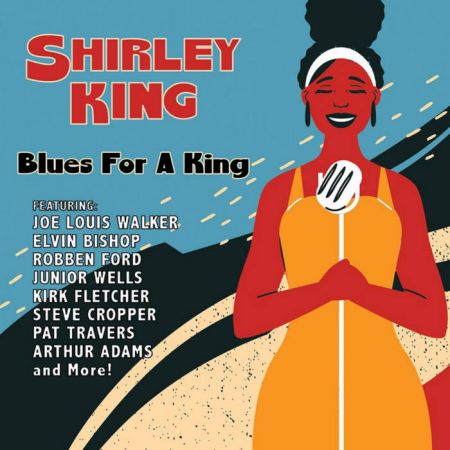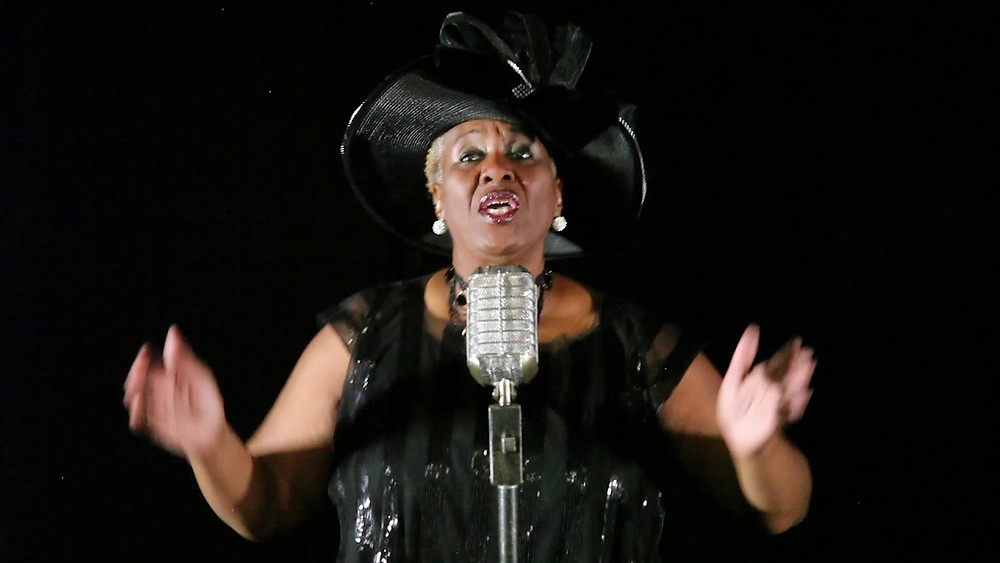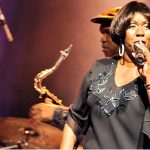If you loved part 1 of this fascinating trip into the blues, then part 2 has even more for you!
Okay Shirley, here we go again!
Shirley, your Dad once said “to play the blues is to be born black twice”. What did BB mean by that, do you think?
I think when he said that, someone must have asked about the debate whether you have to be black to sing the blues. But I’m saying anyone can sing the blues, but usually people who sing the blues are singing from something they have been through, a life moment…If you lived a privileged life and want to sing the blues, guess what, you can be good at it too…but the person who can give the spirit to you is probably going to be black…I’m not my father, but he would return to that nagging question of whether white people can sing the blues and he would always like to say nice things, he would avoid that debate….some would say you have to be black and really live the blues. But living the blues can be any colour. I think there are so many people living the blues. I would get out there and campaign for a whole group on that stage, and call them the ‘All Nation’s Blues singers’, because we are all going through so much at the moment. You don’t even need to sing, and you could create a blues classic now.

The blues speaks about what is happening in your life…even the young people who don’t understand they can sing the blues, but would prefer to place it into hip-hop because that’s their way of singing the blues.
It’s pain isn’t it, the blues. We have a poet in the magazine who contributes some poems of pain, but there is always hope, and I feel blues music is full of hope too.
We are going through the pain right now, dealing with COVID-19. So many things have happened, we can all relate to the blues. If I went into another genre of music, it would be either gospel or country. You connect to the feeling and then express the feeling. If I’m singing the blues, I want to enhance your life with it, but if I sing it, I’m black and I have the blues inside me. My Dad would be smiling, but people never saw that he was having problems. There was a public person, but there was also a private blues man.
Music evolves. I mean, BB King was such an influence for rock music. The white rockers who picked up a guitar came from BB.
Yes, and right now the young people use hip-hop and rap to sing about their blues. If you listen to some hip-hop lyrics, they discuss their blues and say it in their way. My father knew people would do the blues and then change it to their generation. Before BB King, you had all these legendary singers, and they sang the blues with a mixture. You had before BB King the Delta Blues musicians, like Robert Lockwood, I got the chance to meet him. He was cool, he was a friend of my father, and he would tell me stories of my father and how he would teach him when he couldn’t get things right sometimes. But then he would say to me, look at him and look at me! BB embraced what he could do, and he went ahead. He also talked about how you would move from the Robert Leroy Johnson blues to the next era, and then blues evolves to the next. Then it is the next generation, the BB King generation, but you can still pull up and listen to the Robert Johnson era. They may talk about suffering,but it was different.
Your generation Shirley was the generation of struggle, Malcolm X, the civil rights movement and the fight for black rights. Did you find music helped unify the whites and blacks in the US?
Actually, I would say it was my father’s time. By the time I sang the blues, that era was in the past. My dad was that era. I remember him telling me how he couldn’t go and stay in a hotel. I’ve never had that problem. By the time it got to me, I was travelling everywhere without any problem, Paris, London…But my father couldn’t do that. My generation was singing off the shoulder of BB King. He would look back to Robert Johnson or “Bukka” White (another Delta blues man). – Each generation deals with music differently, as my kids choose to sing the blues. They will do it differently, as the audience for them is not the same, with the same needs as BB King had. This generation will sing the blues to an audience who may not even know BB King.
Shirley then spoke about how she goes into schools to connect the blues to the kids. She would find that the black kids were not always excited about a blues assembly, they would want hip-hop. She would speak to an audience of teenagers because she wanted to do something for herself, as herself – not just as something from her Dad.
I remember my Dad saying about the era when he became famous and was on stage with Sam Cooke, and the crowd wanted to hear something joyful, they didn’t want something sad. So my Dad, he would put on the suit and sing it not in the Delta style, but in a style that would attract, after all these other artists picking people up, you don’t want a blues artist depressing you. But my Dad was good looking, he came on dressed appropriate for those you worked with, you went on that stage flashy, no gumshoe. You couldn’t come on and be prepared to entertain, and I knew what to do with the kids in the assembly.
Shirley then described how she looked to connect the young people to the blues, and you don’t get that by telling them how unhappy you are. She would talk about the Chicago greats, about getting that Mo-Jo working.
I won’t talk about people I don’t know, but I knew so many of the Chicago greats. Willie Dixon, I knew Willie Dixon through his daughter. You reach the young people by being energised…If you want to get people into your world, you have to take them into your world.
Shirley would get the kids on stage, and then get them into singing the blues with humour, singing the blues with that solid blues rhythm that would sing the blues with something funny (a very funny song about not having any milk for the morning cereal followed), and this helps the blues live on and on.
No colour barrier to the blues. The blues is respected worldwide. No national boundaries either, you can go round the world and people can get up on stage and sing the blues, as it is a universal language….music respected all over.
And Motown Shirley, were you a fan?
Are you kidding me? Motown, the honour I had in playing Motown when my daddy passed, and they were trying to keep the BB King band alive. Tito Jackson was there, and he sang to front the band and keep it alive. Finding him was amazing. But then you know, the band leader felt he wasn’t getting enough attention, and I’m thinking everyone knows the Jackson Five. You can’t just get Joe Bloggs to front a legendary band. People will come knowing they won’t see BB King, but what about all those Motown fans who will see BB King’s band because Tito Jackson is in the band?
Motown has been interlocked with blues for a while, Gladys Knight, she knew my Dad…everybody tries to use their music to outdo each other, when it should be about bringing it together. If it wasn’t for the blues, there would be no Motown. But Blues lacks airplay and television…and from my 2020 album, so many of my interviews were with rock stations, I became a rock star!
By Mark C. Chambers
and
Benny (the Ball) Benson





Thanks for your blog, nice to read. Do not stop.